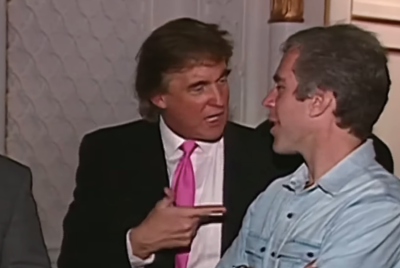Trump Moves to Strip Whistleblower Protections for Federal Staff, Silencing Dissenters Across US Agencies
Trump's rule removes safeguards for senior federal whistleblowers, sparking concern over retaliation and a culture of fear

The White House, under the Trump Administration, is stripping whistleblower protections for federal senior staff who expose government misconduct. The updated changes would also allow agencies to remove said employees without the usual legal protections, exposing them to retaliation.
Critics warn that the move will create a culture of fear and silence employees in reporting corruption or mismanagement. This means affecting tens of thousands of federal staff across agencies, which could undermine decades of congressional efforts to protect whistleblowers.
Trump Admin on Whistleblower Protections for Federal Staff
Since the 1970s, previous administrations have been gradually expanding whistleblower protection to prevent government retaliation against employees who report misconduct.
Reuters reported that the Trump administration's updated accountability rules would exclude senior federal employees from these protections. Legal experts argue that this change targets the very officials most likely to uncover serious wrongdoings in US agencies.
Miles Taylor, a former Homeland Security official, warned on social media that the policy would effectively allow the president to dismiss employees who bring illegal activities to light.
NEWS: White House is *eliminating* protections for gov’t workers who blow the whistle about illegal acts, per Reuters
— Miles Taylor (@MilesTaylorUSA) November 19, 2025
Translation: Trump can fire federal employees who point out that he’s broken the law.
That’s pretty damn dark.
What's Going to Change for Whistleblower Protection?
The White House claims the rule is intended to 'enhance accountability' by allowing agencies to swiftly remove employees in policy-influencing roles for poor performance, misconduct, corruption, or failure to follow Presidential directives.
A White House fact sheet noted that the new policy would cut down on 'lengthy procedural hurdles', making firing processes easier and faster for senior staff.
The Office of Personnel Management estimated the changes could impact up to 50,000 positions across federal agencies.
The administration insists employees would remain with legal protections. However, the new policy entailed that individual agencies would now be responsible for enforcing these protections, not the government itself, which could result in inconsistent application and potential bias.
Concerns About Silencing Dissent Across US Agencies
Advocates for whistleblower rights warn that the policy will create a culture of fear within federal agencies.
Andrew Bakaj, chief legal counsel of the nonpartisan group Whistleblower Aid, told Reuters that the rule will only embolden federal agencies to 'silence dissent in all forms', an ingredient for a culture of fear, silence, and intimidation.
Bakaj also noted that this will make federal employees more hesitant to report misconduct in agencies. This will erase accountability and transparency in government operations, which is important for efficiency.
Stripping protections for senior staff could leave agencies vulnerable to unchecked corruption, according to legal experts. Senior employees are often responsible for monitoring and reporting on policy compliance. But they would also face the highest risk of retaliation if they challenge Presidential directives.
When is it Effective?
The White House is expected to finalise the rule in the coming weeks.
But whistleblower advocacy groups will be challenging the changes, and lawmakers will urge Congress to reconsider. Both aim to preserve long-standing protections that have helped the US government for years in uncovering criminal activities under its nose.
If implemented, the new policy will change the way federal employees deal with oversight mechanisms within their agencies.
For years, Congress has historically relied on whistleblowers to detect fraud, abuse, and other illegal activity. Limiting protections for people who report this will weaken institutional checks on executive power.
© Copyright IBTimes 2025. All rights reserved.



















